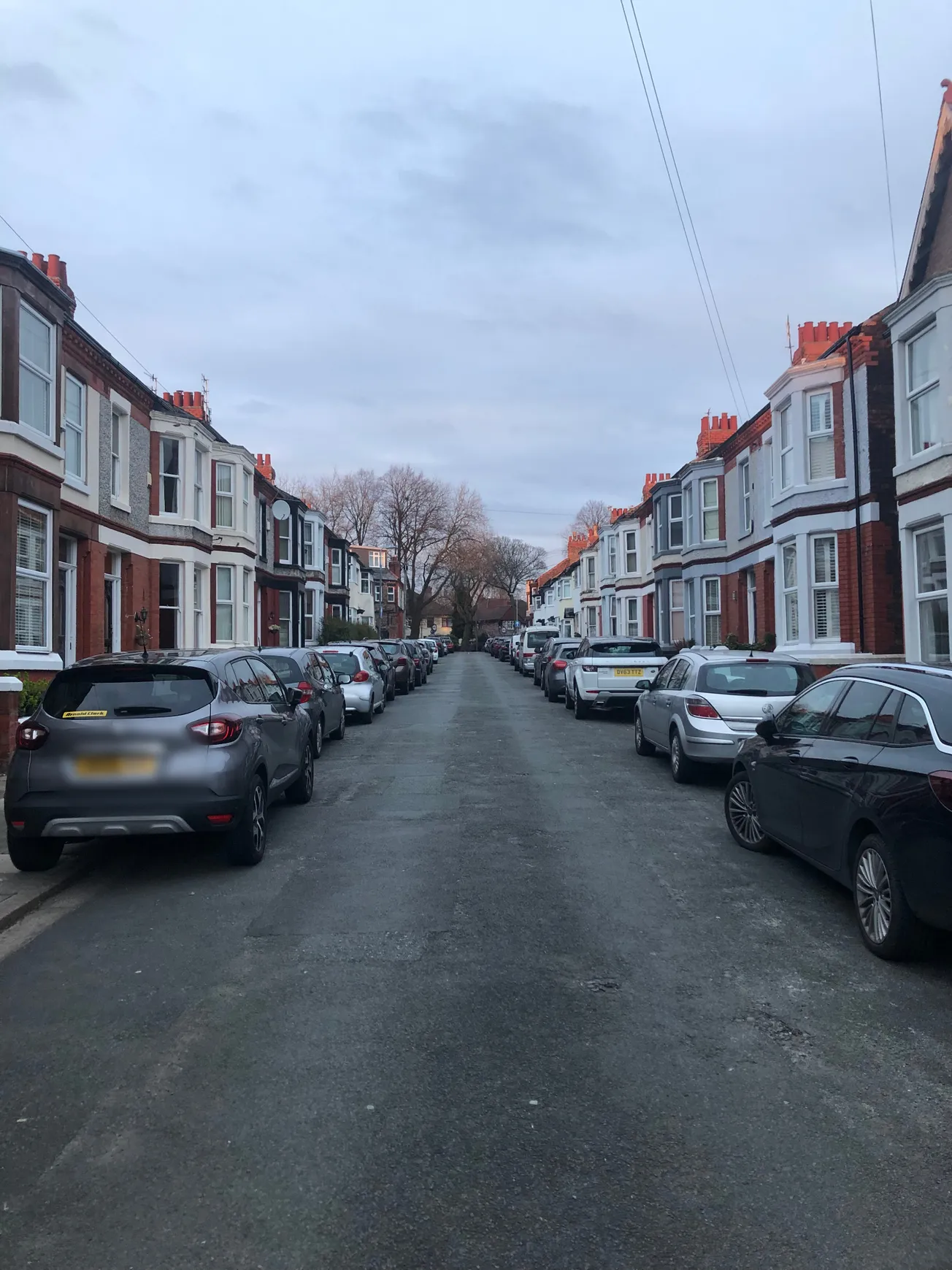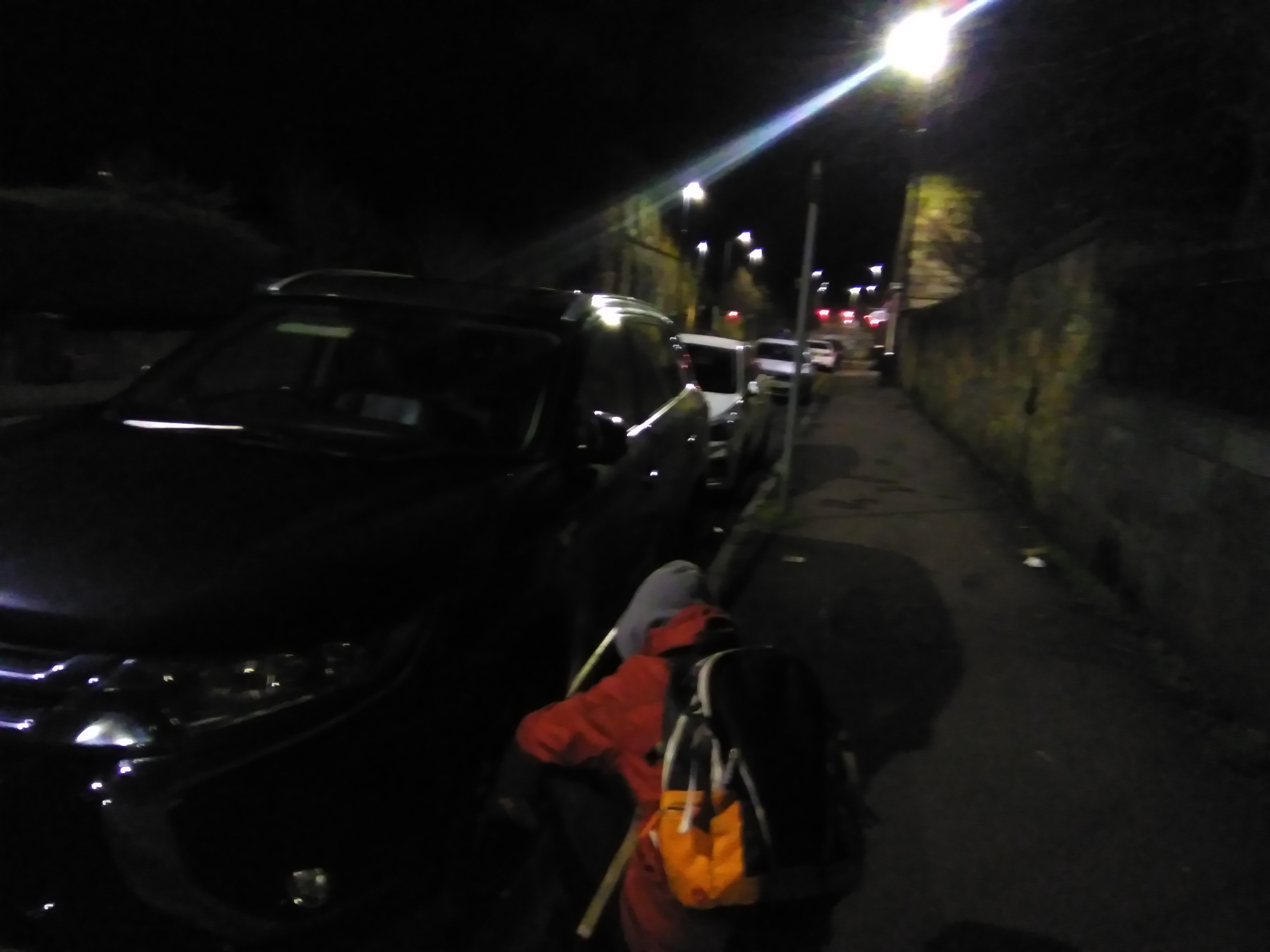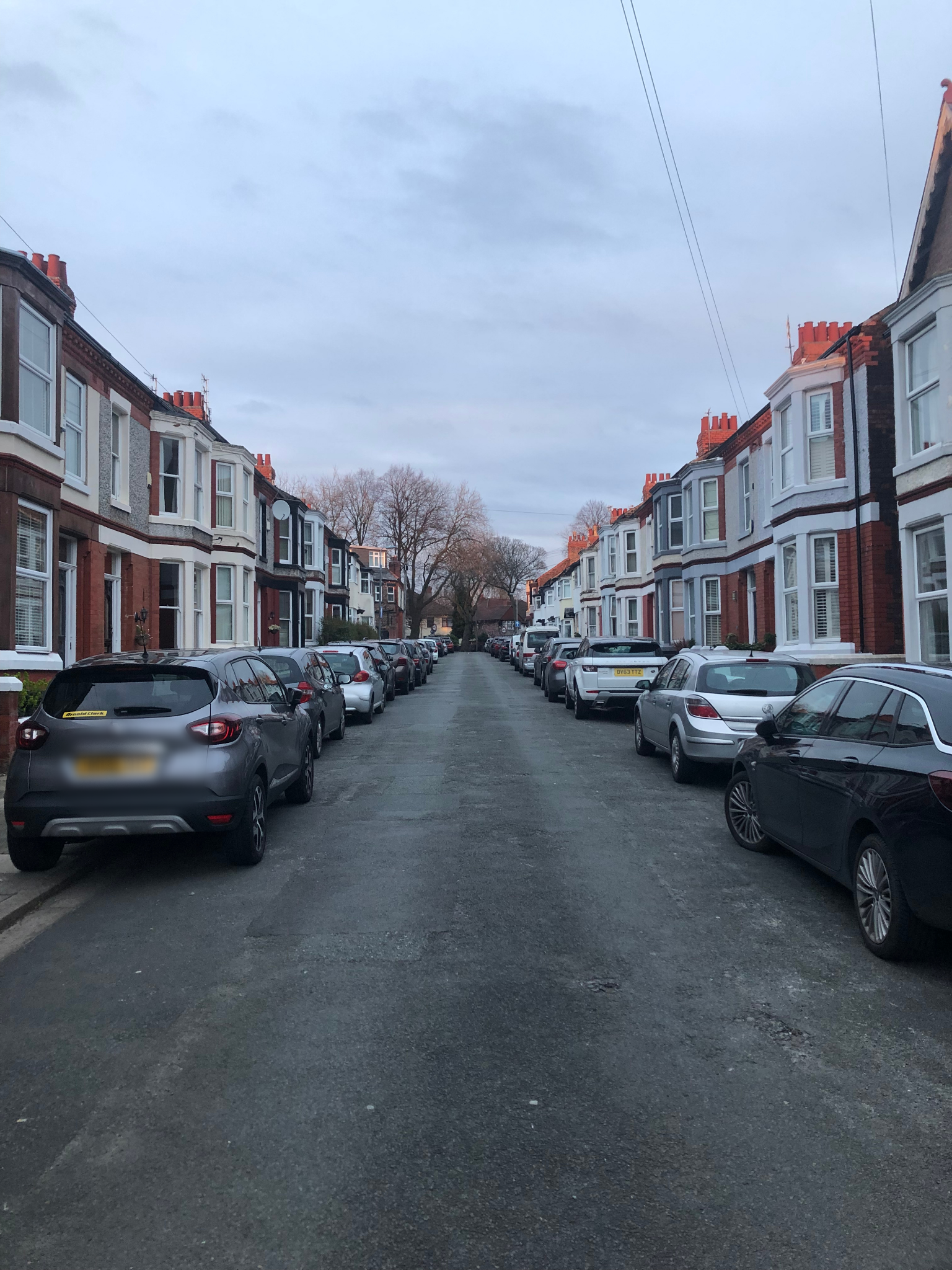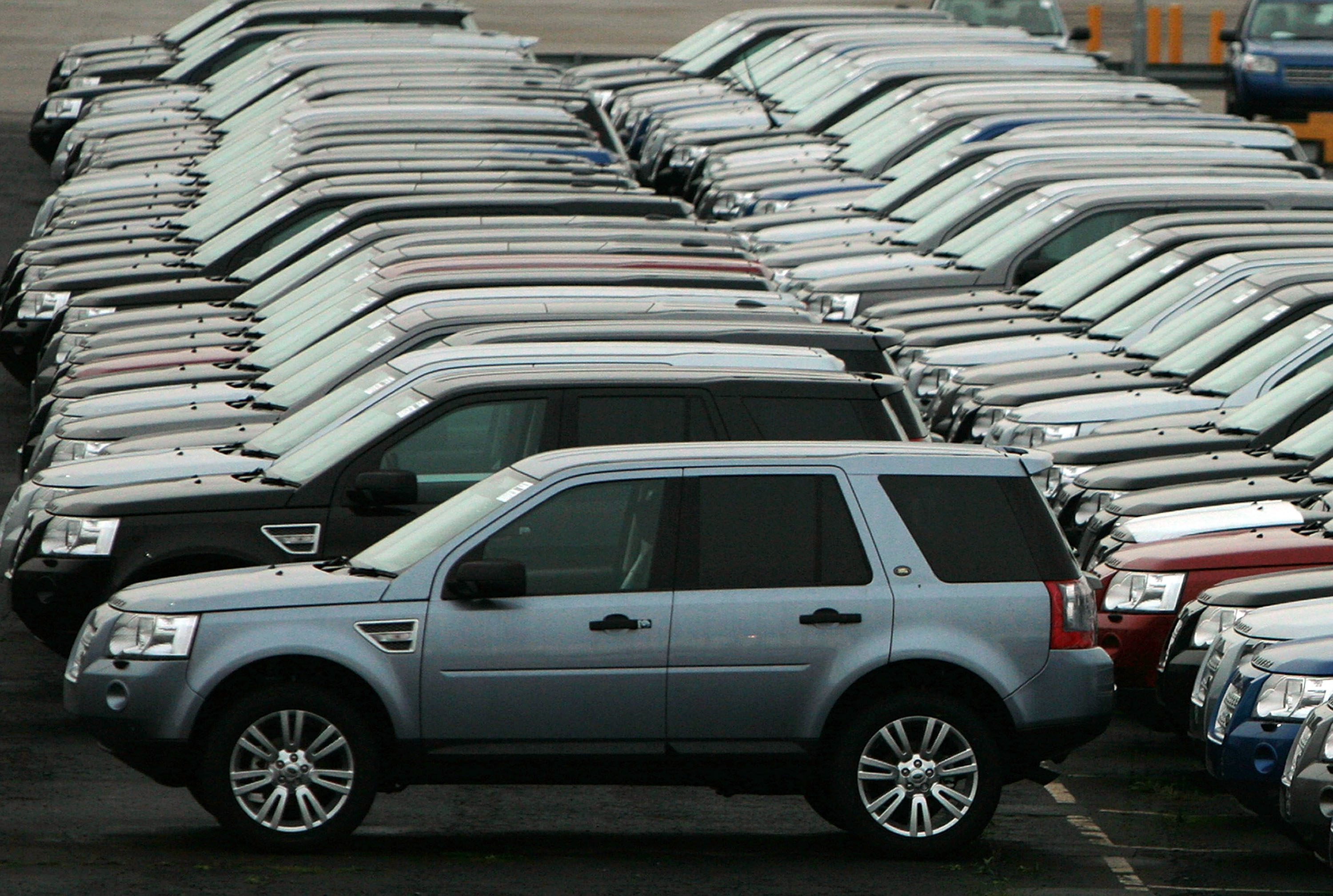Liverpool Tyre Extinguishers declare war on SUVs

'Don’t take it personally. It’s not you, it’s your car.'
It was an unassuming Monday night when a group of activists descended. Their target was a cluster of terraced streets in Allerton, an affluent area dotted with SUVs. That night, a total of 30 SUVs had their tyres deflated.
In a leaflet left on the windscreen, a group called the Liverpool Tyre Extinguishers took credit. “We took this action because SUVs and 4x4s are a disaster for our health, our public safety and our climate,” they say. “You’ll be angry, but don’t take it personally. It’s not you, it’s your car.”
The activists unscrewed the valve on the wheels, and let the air slowly release over a couple of hours. The valve was then screwed back on. In some vehicles, they inserted some wax or a stone, which would push the valve back open even after re-inflating the tyre. The activists say they avoid cars for people with disabilities, jeeps for workers and tradesmen and ordinary cars. Hybrid and electric cars are “fair game”, according to their website. The aim is to get people to make the “sensible decision to sell their SUVs” and start using public transport, or at the least, opt for a smaller electric vehicle.

SUVs, or sports utility vehicles, used to be popular among families in wealthy suburbia or the countryside — more recently, they have been cropping up in city centres. They are often named after mountains and are prized for their reputation for safety and strength. In 2019, SUVs surpassed 40% of all global car sales, and in the UK, SUVs’ share of car sales have tripled over the last ten years.
“We chose Allerton because all the metrics showed that it was one of the most affluent places in Liverpool,” an activist from Liverpool Tyre Extinguishers, who won’t reveal their name, tells me via an encrypted email. “Walking round the streets you see an unbelievable amount of SUVs, once you decide to notice them, you start to realise the scale of the problem.” They felt the government were failing to address the issue and they didn’t expect a response from the motoring lobby, so they were left with bringing it to people’s attention instead.
One resident reported the incident as criminal damage to the police. Others re-inflated their tyres before driving to work that same morning. I’m told by one local that at best it was an inconvenience, but at worst, it represented the arrogance of the young, the hypocrisy of the left and a misguided theory that you can win people over through protest.
‘Insecure, vain’
On a recent walk around the city, I visited some of the streets where the action took place. A ten-minute detour from the independent grocers and butchers on Allerton Road, the houses are elegant terraces with period features and family cars parked on the kerbs.

SUVs are controversial, partly for their aggressively large aesthetic, the anthropological theory that they make drivers feel taller, safer, and more likely to take risks on the road, but also for their massive polluting problem. Every year, SUVs emit 700 megatonnes of carbon. If SUVS were a country, they would be the seventh biggest polluter in the world. SUVs elicit so much contempt that in the New York Times reporter Keith Bradsher’s book High and Mighty: The Dangerous Rise of the SUV, he wrote that market research concluded that SUV buyers were “insecure, vain and frequently nervous about their marriages”.
Are people on these streets self-conscious about their cars? I ask Miles Doherty, a local resident whose SUV was deflated on Monday. “That’s not like a discussion with my neighbours, to be honest,” Miles says. “We usually talk about real ales.”
I walk to a street where I’m told around a dozen cars were targeted by Liverpool Tyre Extinguishers. Graham opens the door holding a white cockapoo under his arm, who growls at me when I say hello. “Look, just give me one second,” he says, and throws his dog in the living room. “Just let him bark.”
‘It was so patronising’
A couple of days ago, Graham woke up to a note on his car window. He was furious. “The person that let my tyre down was lucky. The note they left, it was so patronising,” he says. Graham is an electrician by trade and installs electric charging points for electric cars. “I’m well aware the technology isn’t there, and we’re going to have a massive issue with batteries that need to get fired into landfill soon.”
Graham identifies as working class, and was brought up Labour “as you have to vote here”. But he’s disillusioned with the social justice movement and says working people are the ones being punished as living costs, fuel prices and council tax are hiked up.

“I call them [the activists] the left liberals,” he says, while the dog continues to bark. “What they've done is they've used identity politics saying, well, if you live in this area, and you have that car, you're now middle class, and you're gonna get punished for it.” He bought a hybrid Volvo SUV a few years ago because it looked like a safe, family car and insurance rates were affordable.
Graham is conscious of climate change and pollution and says he takes the train when he can, but the demands of his job and childcare mean he often has to travel by car. “I do think there does need to be pressure put on the government,” he says. “Because all they do is just hike everything up. At least Elon Musk is trying to do something.”
The Tyre Extinguishers movement comes from a Swedish eco-vigilantism movement that employed similar tactics in 2007 and deflated the tyres of over 1,500 SUVs. The movement takes partial credit for SUV sales plummeting in Sweden shortly afterwards — though it’s difficult to find statistics on this. It’s a tactic that Andreas Malm, activist and author of How to Blow Up a Pipeline, says should be embraced by the climate movement. He writes that climate activism’s commitment to non-violence is a mistake, and says any successful social movement will involve some form of destructive action.
The obvious risk is that this could alienate those outside the climate movement. When Mike Bacon invites me into his home, we sit and drink tea and he tells me SUVs are good cars for disabled people. “It’s really easy to get in and out,” he says. Mike had spinal surgery and a hip replacement, and says he finds Liverpool city centre difficult to navigate in terms of public transport.

‘The movement is large and it’s spreading’
I notice from talking to Mike and some other residents that there’s general murmurings of agreement with the movement. Mike is a lifelong trade unionist and believes in the power of protest. His neighbour, Miles, also said he agreed with them and doesn’t see climate change offering a pretty future for his grandkids. But I don’t sense this is a community where people are likely to be convinced to change their habits. This might be logistical: Graham points out a lot of cars are on leases. Or maybe it’s the type of work they’re in. Mike also says these are streets filled with people who “kept things going during the pandemic”: nurses, paramedics and social workers who need their cars for their work. “We’re not bankers or elites,” he says. “I think they’re targeting the wrong area.”
When I contacted the Tyre Extinguishers again to ask them about some of the cars they targeted — some hybrids, some electric, one owned by a disabled man — they said: “It seems unlikely that a lot of them are. We can see this being exaggerated in the press.”
So how much is this movement growing? “We don’t know how many people because of the leaderless and decentralised nature of the movement,” an activist tells me. “But we do know it’s large and spreading.” They also tell me around 200 SUVs were deflated in Brighton on Monday night.
The next day I speak to a public transport expert, a local man named Danny Robinson who founded Peloton Liverpool, a charity aiming to create a sustainable cycling culture in the city. He says the movement may be having the adverse effect of putting people off. He doesn’t like SUVs, either — saying a recent tour he took of the Jaguar Land Rover plant in Halewood, with large 4x4 cars lit up in mood lighting, left him feeling bemused — but understands that cars can knit a family together and be important to people’s livelihoods. His mission is to encourage cycling as a meaningful alternative to driving, but he also thinks it’ll be a long time before we reach a tipping point with cars leaving the roads. “I’m more of a hearts and minds kind of guy,” he says. “It’s about hand holding, not looking down your nose at people. You’ve got to hold people like eggs.”

Comments
Latest
‘Cutthroats and sell outs’: An editor’s note about Laurence Westgaph’s threats
Ian Byrne: Why the country — not just Liverpool — needs the Hillsborough Law
The ‘charisma bypass’: Why Liverpool’s leaders are so forgettable
The Mersey’s clean-up cost £8 billion. So why is it still so dirty?
Liverpool Tyre Extinguishers declare war on SUVs
'Don’t take it personally. It’s not you, it’s your car.'